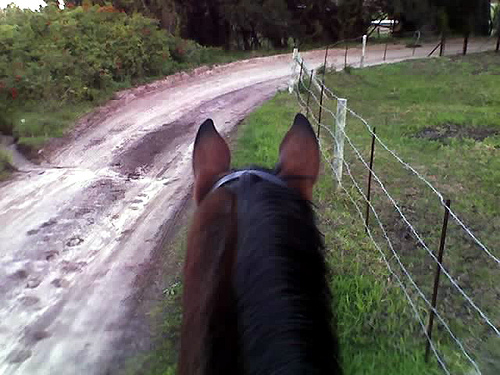Revisiting Your Strategic Plan
Since we are now done with Shoot Your Novel, and I’m gearing up to present another full year of instruction for novelists, I thought I’d take some time in these last open blog spots to talk about writing goals.
Last year at this time, I shared a number of posts with you on strategic planning for writers. Now that the year 2013 is ending, I thought it would be good to revisit some of the key points from those posts to get you thinking a bit about 2014, to help you set some writing goals that you can aspire to.
In the first post on strategic planning, I spoke about how strategic planning is like taking a trip. When you decide to take a trip, you usually plan out some places you want to see, and within the framework of the time allotted for your trip, you try to reasonably decide just how much you can get to. This is basically the idea when we plan out milestones we want to hit in our writing career. The trick is to think big and dream big, but also be reasonable so you can reach some (or maybe all!) of the goals you set for yourself in the coming year. I feel it is always better to dream bigger and aim higher, knowing you might not reach all those goals. But setting your sights on them can be inspiring and can motivate you into action. Without any clear, precise objectives, people tend to lose focus and procrastinate, then end up falling short of their dreams.
The Four Things That Lead to Success
We looked at the four (yes, just four) basic things needed in order to succeed in your writing career: vision, strategy, tactics, and action. Here’s a simple explanation of each of these key components of your fabulous strategic plan:
- Vision: You need to have a clear idea of what you want your career to look like in 1, 2, and 5 years. If you want to just plan next year because thinking too far ahead gives you hives, just focus on that.
- Strategy: All this really means is you create a road map you will use to get to the milestones you set as goals.
- Tactics: Tactics are the specific methods and skills you will use to achieve various milestones, each by a certain deadline.
- Action: This is where you get going to reach those milestones and how exactly you plan to get there.
Honing Your Vision
In the next post on strategic planning, we looked at the vision component and broke down your vision. Vision includes the things the things you want to have, the things you want to do, and the things you want to be. Here, again, is an example of ways to specifically envision goals you want to reach, supplied by writing instructor Randy Ingermanson:
- In ____ years this is what I want my life to look like: (Do this for each period of time for which you are setting up your vision.)
- I will be having a wonderful time writing ___________________________________________ (What do you want to be writing about/what kind of writing?)
- I will be earning $____________ from my day job each month, working _________ hours per week doing ____________.
- I will be earning $____________ from my writing job, working _________ hours per week.
- I will also be doing these fun or cool or worthwhile things: ______________________________________________________ (because you also have a life and other things are important too).
If you are going the indie publishing route, you will want to add these:
- I will have ___________ ebooks for sale by this benchmark date.
- Each ebook will be selling ____________ copies per month and earning me $______________ per month.
If you are looking to get traditionally published (or have more books published via this channel), you may need something like this in your vision:
- I will have landed an agent contract by this benchmark date.
- I will have gotten a publishing contract for this novel ______________ or this many novels ___________________.
- I will be selling _________________ copies per months of my published books and will have earned $ ________________ royalties by the end of this benchmark date.
Yes, Be Specific!
Do you see how specific your vision must be? In order to create a strategy to reach your goals, you have to get that vision set up so it is the destination you are striving for. By filling in those blanks, you are clarifying what you want to do and what you want to have, which in turn paints a picture of what you want to be.
Once you have all this worked out, remember this is not set in stone. You are not making a blood pact that inflicts torture or shame if you fail to reach your vision by the benchmark dates. You should look at this more as your lens focus, helping you hone in on your writing career goals in a practical way.
I set the goal for myself to write (as usual) two novels this year. This was a bit more challenging than usual because it was the first year in which I worked full-time as an editor the entire year. So it took a bit of serious time-management to reach that particular goal. In July I added a short-term goal in the middle of all my other goals, and that was to write a specific type of novel from idea to publication in three months. I think the discipline of all the years prior in sticking to my strategic plans helped me make this outrageous deadline. I feel proud for accomplishing this, and gave myself one of those sticky gold stars!
So I hope this gets you thinking about these particulars again. And for those of you who did implement a strategic plan for 2013, did you reach some or all of your goals? What problems, if any, did you encounter, and did this help you stay focused and follow a plan for your writing career?
Photo Credit: Al_HikesAZ via Compfight cc












Great advice and all very true. You can’t get to any destination without a road map!
I’m actually working on a business plan for my writing career doing the same things you are talking about here. I love the examples. I’m keeping the plan on the less formal side, but I thought it might help me focus on the important instead of the urgent. Thanks! 🙂
You’re welcome. I’ve written real business plans. This is much easier–and more fun. Be sure to go to all those posts that ran last year to pick up all the good bits!
Thanks my friend for this wonderful and practical reminder. My goodness, this applies in SO many areas of life – especially writing and in my work – mentoring Pastors and those in full time ministry. I love your excellent work.
Thanks, Jim! So good hearing from you. Keep up your excellent work too!